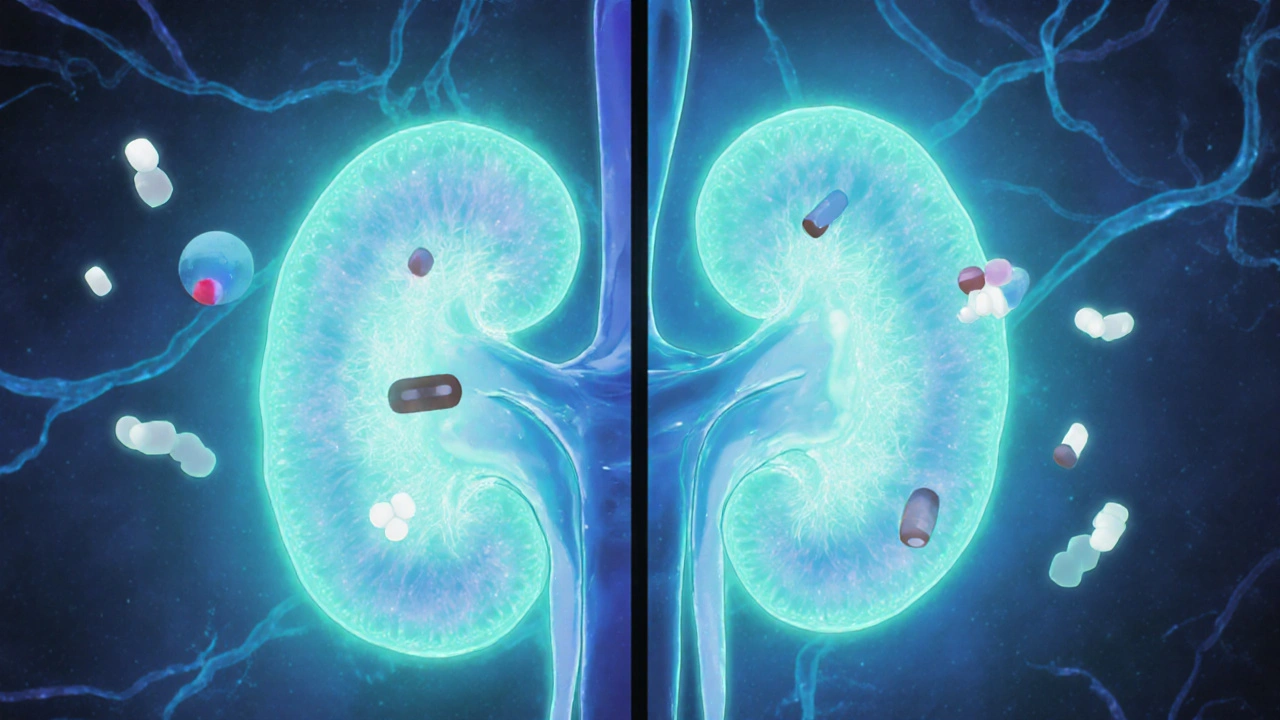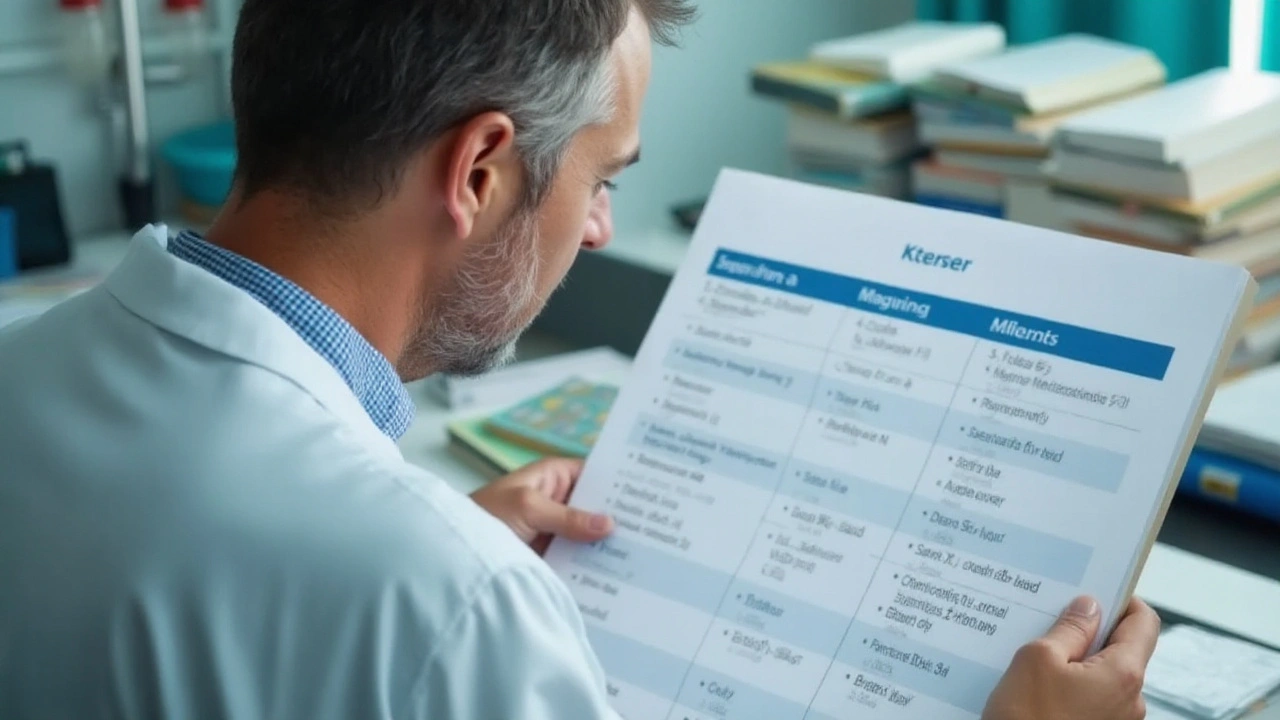Hypertension Treatment: What Works and What to Try First
High blood pressure often has no symptoms, yet it quietly raises your risk for heart attack, stroke, and kidney trouble. Want practical steps you can start today? This page sums up the treatments doctors use, simple lifestyle moves that cut numbers fast, and when to get medical help.
First, lifestyle changes matter. Try the DASH-style approach: eat more vegetables, fruit, whole grains, and lean protein. Cut sodium — aim for under 2,300 mg daily, and nearer 1,500 mg if you can. Lose even 5–10% of body weight if you're overweight; that often drops blood pressure a few points. Move regularly: 30 minutes of moderate activity most days helps. Limit alcohol, stop smoking, and treat poor sleep—untreated sleep apnea raises blood pressure.
Common Medication Options
If lifestyle measures aren’t enough, pills usually follow. Doctors pick meds based on your health and other conditions. Main classes include:
- ACE inhibitors (example: lisinopril) or ARBs (example: losartan): good when you have diabetes or kidney concerns.
- Thiazide or thiazide-like diuretics (hydrochlorothiazide, chlorthalidone): often first-line for many people.
- Calcium channel blockers (amlodipine): effective for older adults and some ethnic groups.
- Beta blockers (metoprolol): helpful if you have heart disease or certain arrhythmias.
- Mineralocorticoid receptor antagonists (spironolactone): used for resistant cases.
Sometimes doctors combine two or three drugs at low doses for better control and fewer side effects. If you have heart failure or fluid overload, loop diuretics like furosemide (Lasix) are used—read our Lasix guide for details.
Monitoring, Safety, and Special Situations
Home blood pressure monitoring gives a clearer picture than occasional clinic checks. Buy a validated cuff, measure at the same times daily, and keep a log to show your clinician. Targets vary, but many adults aim for under 130/80 mmHg—confirm your personal goal with your doctor.
Watch for side effects: lightheadedness, cough with ACE inhibitors, leg swelling with calcium blockers, and low potassium from some diuretics. Never stop meds suddenly—talk to your prescriber first. Pregnant people should avoid ACE inhibitors and ARBs; discuss safe options with an OB.
Resistant hypertension (high readings despite three drugs) needs a closer look: check for nonadherence, interfering medicines, or secondary causes like sleep apnea or kidney disease. Your doctor may add spironolactone or order tests.
If blood pressure spikes above 180/120 or you have chest pain, shortness of breath, or stroke symptoms, seek emergency care right away. For everyday guidance, use lifestyle steps, stick to meds, monitor at home, and keep regular follow-ups. Want more on specific medicines, safe online pharmacy options, or how other treatments affect blood pressure? Browse related guides on Medzino for clear, practical info you can use.

How Amiloride Is Used in Combination Therapy for High Blood Pressure
Amiloride is a potassium-sparing diuretic used in combination with other blood pressure medications to improve control and prevent dangerous potassium loss. Learn how it works, who benefits most, and what to watch for.

Exploring Effective Alternatives to Lasix in 2024 for Optimal Health Outcomes
In the vast landscape of prescription medications, finding the right alternative to Lasix can significantly impact patient outcomes. This article delves into seven alternatives, each with unique mechanisms and benefits, from Torsemide's efficiency in heart failure management to Spironolactone's potassium-sparing properties. While presenting their merits, this piece also highlights potential drawbacks, ensuring a comprehensive understanding for those exploring these options. The inclusion of a comparison table aims to aid decision-making in selecting an appropriate treatment.
